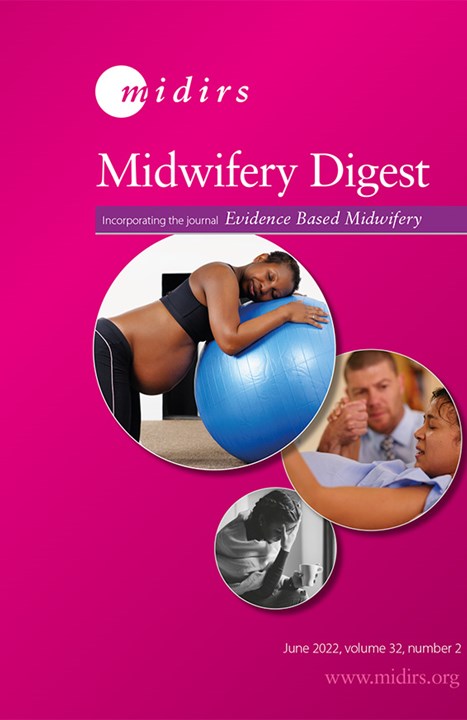
MIDIRS Midwifery Digest Hot Topic: Why are some voices not heard? Exploring how maternity care can be improved for women with limited English
There is a robust body of evidence, accumulated over the decades, which shows that limited English proficiency is a key factor associated with poorer maternal and neonatal outcomes. Our work as midwives and researchers has led us to believe ...71-80 of 85 result(s)

Joys and challenges of relationships in Scotland and New Zealand rural midwifery: a multicentre study
Globally there are challenges meeting the recruitment and retention needs for rural midwifery. Rural practice is not usually recognised as important and feelings of marginalisation amongst this workforce are apparent.
Honesty and comfort levels in mothers when screened for perinatal depression and anxiety
'Women who are most likely to need mental health care during the perinatal period are also those least likely to be honest about their mental health’ concluded a recent study.
Effect of structured educational package on women’s sexual function during pregnancy
The objective of this randomized controlled trial study was to explore the effect of a structured education package based on ADDIE to reduce sexual dysfunction during pregnancy.
A student midwife placement poem: Hello little one, are you there?
Bianca Barrie is studying at Bournemouth University and wrote this poem during her placement (Community and Antenatal Clinics), partially as a reflection but also to story share with her peers.
Maternal outcomes associated to psychological and physical intimate partner violence during pregnancy: A cohort study and multivariate analysi
Intimate partner violence (IPV) is a public health problem that affects millions of women worldwide and can occur during both pregnancy and the perinatal period.
Task shifting: Maternity Support Workers as the second health worker at a home birth in the UK: a qualitative study
Traditionally two midwives attend home births in the UK. This paper explores the implementation of a new home birth care model where births to low-risk women are attended by one midwife and one Midwifery Support Worker (MSW).
Men’s use of metaphors to make sense of their spouse’s miscarriage: expanding the communicated sense-making model
With approximately 20% of pregnancies ending in loss, miscarriage is a relatively common and stressful occurrence. Because romantic partners’ coping efforts are intimately connected, the way one partner copes with the other’s miscarriage ...
Latest research: Student midwifery reflection
This project aimed to optimise the learning potential of practice-based experiences by enhancing midwifery students’ capacity for reflective practice through writing.
Why Hypnobirthing has Earned its Place in Mainstream Childbirth
Giving birth is one of life’s most incredible miracles but while the birth of a child is a precious moment, stories of painful and laborious childbirths abound.

